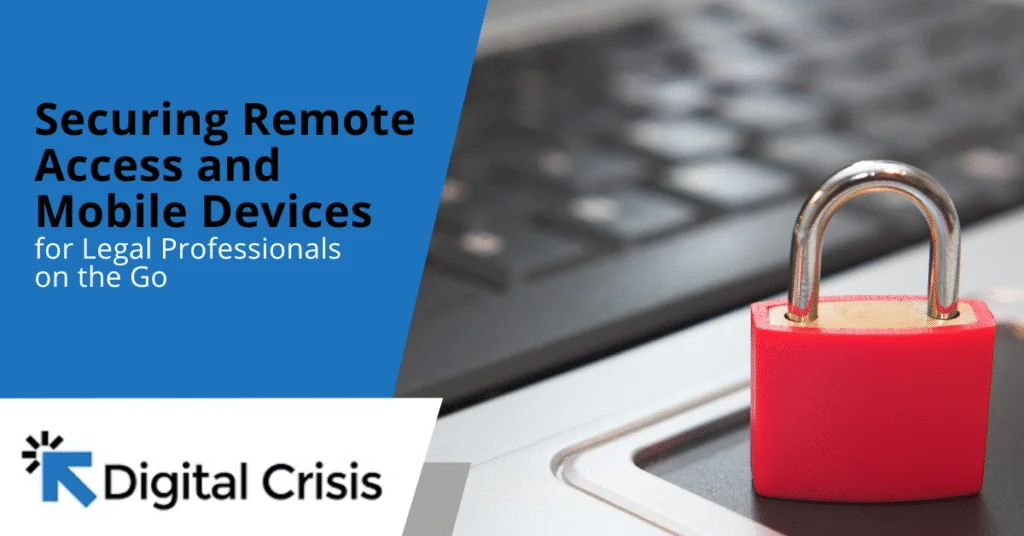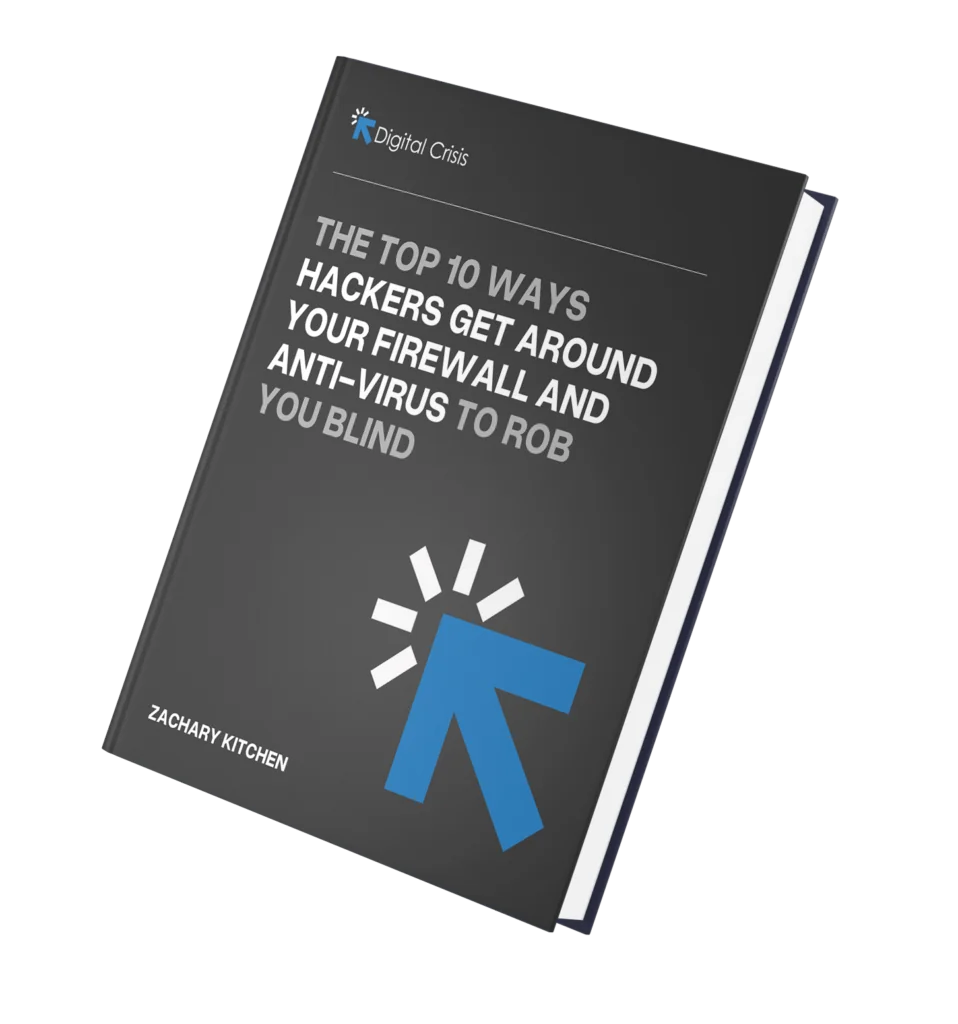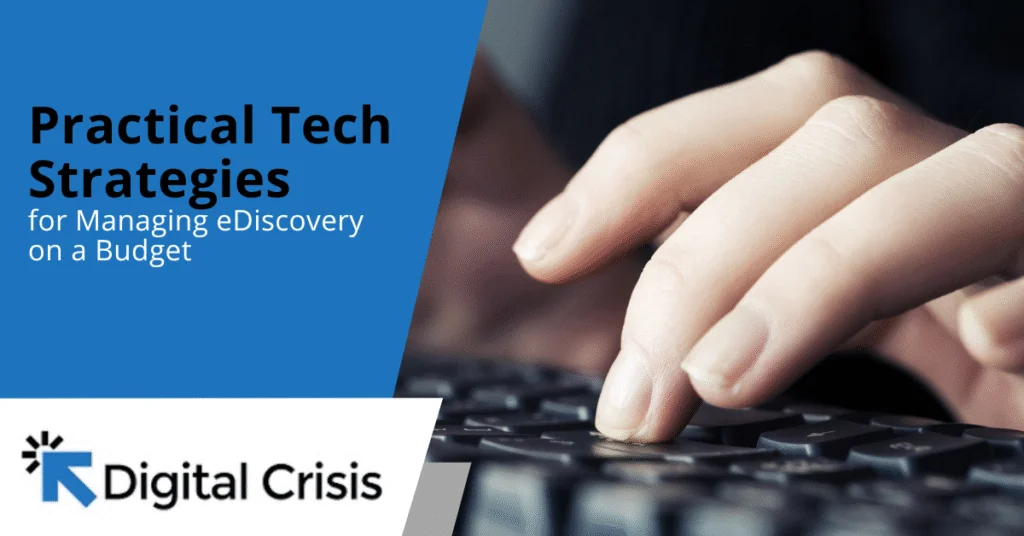Securing Remote Access and Mobile Devices for Legal Professionals on the Go

There’s nothing quite like the freedom of being able to work from anywhere—until that freedom opens the door to serious security risks. For legal professionals who are always on the go, mobile access is a game-changer. But if your security practices haven’t caught up with your flexibility, you could be putting confidential client data at risk every time you check an email from a coffee shop or jump on public Wi-Fi between court hearings.
Thankfully, expert IT services designed for law firms are stepping in to fill this gap. These services not only monitor and manage cybersecurity but also offer scalable protection tailored for mobile professionals. With client trust, compliance, and reputations on the line, legal teams can’t afford to overlook the risks, and thankfully, they don’t have to tackle it alone.
Why Mobile Security Is Non-Negotiable
According to a study, 29% of law firms experienced data breaches as a result of sending confidential data into the digital wild west without protection.
It’s not just theoretical either.
Law firms are usually the number one target of cyberattacks because they hold valuable personal and financial data. From malware getting access to your texts to simply losing your phone in a taxi. There are tons of ways your data could be stolen.
Being remote has its perks, but without strong security measures, it is still risky.
1. Think Before You Tap
The first step in securing your mobile practice isn’t technical at all—it’s about being aware of your surroundings. Don’t loudly discuss case details in public. Don’t draft emails where someone can read over your shoulder. Basically: don’t give away the game before it’s even started.
Use privacy screens when working in public places. And maybe skip connecting to that open Wi-Fi network named “Free Starbucks Wi-Fi”—unless you’re using a VPN.
2. Lock It Down—Every Device, Every Time
It might sound basic, but password-protecting your devices is a bare minimum. Phones, tablets, laptops—if it can access client information, it needs a lock screen with a strong password.
A good password should be more than just your pet’s name and birth year. Think longer than 12 characters, mix in uppercase, lowercase, numbers, and symbols, or better yet, use a passphrase. Password managers like KeePass can make this less of a headache and more of a habit.
3. Two-Factor Authentication: Your Backup Bodyguard
Even a bulletproof password can be cracked. Two-factor authentication (2FA) gives your accounts a second line of defense. You type in your password, click enter, and verify your identity with a code sent to your mobile, which is generated by Google Authenticator.
You may feel like skipping this because it will take some of your time, but in reality, this extra step goes a long way to give you that extra security.
4. Encrypt Everything
Encryption sounds complicated, but it doesn’t have to be. Many modern phones come encrypted out of the box. If yours doesn’t, turning it on is usually just a few steps away in your settings.
Once encrypted, even if your device falls into the wrong hands, the data stored on it is virtually unreadable without the correct password or PIN.
And don’t stop at your phone. Your laptop’s hard drives and USBs should be encrypted too. For Macs, use FileVault. For Windows, enable BitLocker. For external drives, go the extra mile with third-party tools if needed.
5. Secure Your Communications
Even with encrypted devices, how you send information matters just as much as where it’s stored. Texting or emailing client data over unencrypted channels is asking for trouble.
Use secure messaging apps like Signal for quick, private exchanges. And for document sharing or detailed communications, stick to encrypted client portals provided by your legal practice management system.
6. Bring Your Own Device? Bring Your Own Policy.
If your firm allows attorneys or staff to use personal devices for work, you need a BYOD (Bring Your Own Device) policy. This should include:
- Mandatory encryption on all devices accessing firm data
- Remote wipe capability in case a device is lost or stolen
- Rules on which apps and platforms are approved for use
- Regular training on cybersecurity best practices
Think of it like a seatbelt for your firm’s mobile operations—simple, effective, and potentially life-saving for your data.
7. Stay Updated or Stay Vulnerable
Outdated systems and apps are like open doors for hackers. It is crucial to keep our software updated, which fixes major and minor flaws. These cybercriminals are always on the lookout for vulnerabilities in our software that they can exploit.
Set all your devices and apps to update automatically. Don’t snooze those reminders—tap “update now” like your job depends on it. Because it kind of does.
8. Backup Like You Mean It
What happens if your device dies—or worse, falls victim to ransomware? Backups aren’t just for “oops” moments; they’re your last line of defense.
Set up encrypted, automatic backups weekly at a minimum. Cloud-based backups are ideal, especially if they offer geographic redundancy (so even a regional disaster won’t take you down).
Losing a phone shouldn’t mean losing a trial or breaching client trust. With the right backup strategy, it doesn’t have to.
9. Make Cybersecurity a Team Sport
Security doesn’t begin and end with the IT department—it’s everyone’s job. If you’re using legal tech solutions that offer robust security frameworks, you’re off to a good start. But remember, your provider can only do so much. You and your team still need to follow best practices to keep the system airtight.
Encourage your firm to treat cybersecurity like professional ethics: not optional, and not up for debate.
Don’t Let Convenience Cost You Compliance
Practicing law on the go is easier—and more powerful—than ever. But with that power comes the responsibility to keep client data secure, no matter where you’re working from. With the right mobile security practices, your firm can enjoy the flexibility of remote access without compromising on protection.
Whether it’s enforcing encryption, setting up secure communication channels, or working with an expert IT partner like Digital Crisis, who understands the unique needs of law firms, protecting your practice isn’t just possible—it’s essential.
Contact Digital Crisis today, who are experts in law firm IT security, and take control of your mobile cybersecurity today. Your data, your reputation, and your clients deserve nothing less.














